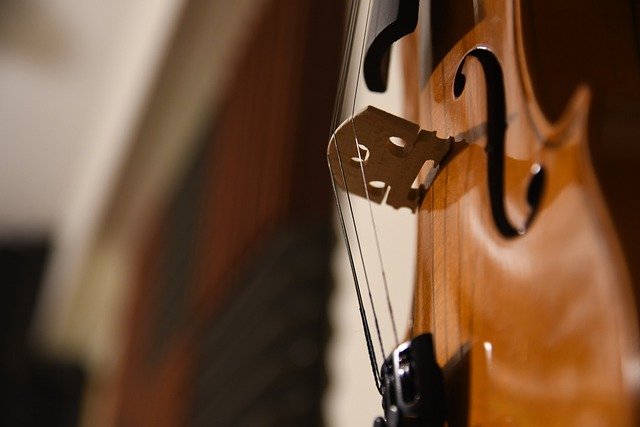There is something typical about corporate training in Japan; from my experience, it is very common in Japanese participants that their motivation level is quite low. In fact, not a few people come to the training with their professional mindset “turned-off,” so I usually have to start by doing something positive to bring the “negative” motivation level up to, at least, neutral. If this goes well, and if the training turns successful, participants would be pleasantly surprised. Nevertheless, it certainly is not efficient to have to interact with people with low motivation at the onset. To begin with, joining a training program without having any clue about what you intend to learn is an unimaginable situation for many non-Japanese people, whose career development is in their own hands. So, this may be unique to Japan, where lifetime employment and career advancement have been, more or less, “assured” even for those who didn’t advocate for themselves or push for it.
Anyway, at MindSeeds, Inc., we reject people with a lack of motivation; we dismiss the participants if they maintain an attitude during the training (that is, they are asked to leave). Once “dismissed,” they tend to realize what they’ve lost, and that is a good lesson learned for them. If you don’t want to be there, you don’t need to come. It will do no good for you, and it’s actually harmful for those who are there to learn.
In a very well-known tale called Gauche the Cellist written by Kenji Miyazawa, there is this line:
Why did you stop there? Even the wimpiest of cuckoos keep singing until their throats start to bleed.

This short story starts with a scene where an orchestra is rehearsing in preparation for an upcoming city concert. Gauche, the main character, is not as skilled as the others and the conductor keeps urging him to improve. Gauche goes home and practices very hard every night, and different animals visit each night. The above line was said by a cuckoo who visited Gauche on the second night.
The cuckoo wants to learn a proper “Do-Re-Mi” before he goes overseas and begs Gauche to teach him music. Gauche resists but eventually agrees to help him and plays the cello over and over for him. The cuckoo enthusiastically practices singing over and over. The scene goes like this:
The cuckoo bird became ecstatic and joined in, singing, ♬-cuckoo-cuckoo-cuckoo-♬. Bending forward as far as it could, it sang on and on and on.
Gauche's hand eventually became sore.
“Alright, that’ll do,” he said, and finished playing.
The cuckoo lowered its eyes sadly as it continued to sing, before slowly trailing off, ♬-cuckoo-cuckoo-cuck…cuck…koo…-♬
Gauche became furious.
“Look bird, if there’s nothing else then go home!” he yelled.
“Please, if you could just play it one more time. Yours is pretty good, it’s just a little off.”
“What did you say? I’m not taking lessons from you, you know. Aren’t you going home?”
“Please, just one more time. Please,” begged the cuckoo, bowing its head over and over.
“Alright, but no more after this.” Gauche readied his bow.
The cuckoo let out a “Koo” as it took a breath,
“Now, please play as long as you can,” it said, bowing one more time.
“What a pain you are,” said Gauche, giving a wry smile as he started to play.
The cuckoo became completely serious, bending forward and singing “♬-cuckoo-cuckoo-♬, with everything it had.
Kenji Miyazawa (2014), “Gauche the Cellist”, Translated by Paul Quirk, Published by Little J Books.
As Gauche continues to play over and over, he somehow starts to feel that the cuckoo actually has the proper Do-Re-Mi, not him:
(…) In fact, the more he played, the more he felt the bird had it right.
“Ah... if I keep this up I’ll turn into a bird myself,” said Gauche, and stopped all of a sudden.
After this line, the cuckoo looks at Gauche with irritation, and throws the above-quoted line:
“Why did you stop there? Even the wimpiest of cuckoos keep singing until their throats start to bleed.”
It is not about skills and techniques, it’s about the attitude. How serious you are, and how committed you are, that’s what matters. Some people keep listing the reasons why they cannot do and keep complaining, but then I wonder if they will ever be ready to commit. In addition, do they think that important business actions or lifetime events only happen when they are well-prepared? What matters is what you do and how you do it now, at this moment.

Through a series of episodes every night with different animals, Gauche’s cello technique improves considerably, and the performance is a huge success. Not only that, Gauche is even asked to go out and play a solo in response to an encore. The conductor could not be happier and tells Gauche:
“You’ve improved a lot in what, a week, ten days? If I compare you now to what you were like ten days ago, you’ve gone from a baby, to a warrior. You see Gauche, you can do it if you just try!”
Actually, it is not necessarily the case that we can do whenever we try. The moment we “need to do” always comes without notice. The globally known conductor, Seiji Ozawa’s moment was when he was called upon as a last-minute replacement to lead the orchestra at the Ravinia Festival, and it was a big success. His chance came at that very moment, and if he hadn’t grabbed it, it might have never come again. As the Latin saying goes, “Opportunity has hair in front, but behind she is bald.” If suffered to escape, we can never catch it again.
That is why it is important to commit to everything you do. It is also about committing to yourself. I want to commit to do my best, just like the cuckoo, to keep singing until my throat starts to bleed.